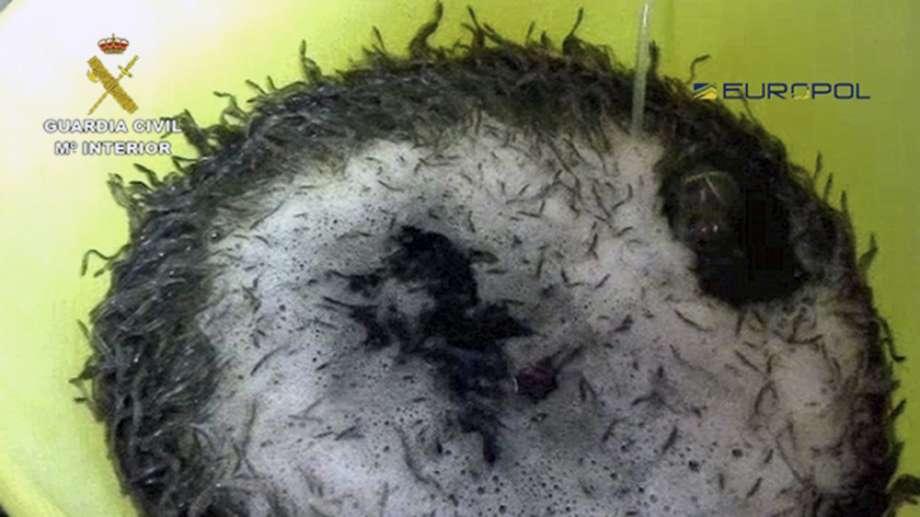
Spain’s Civil Guard says it has brought down a criminal network making lucrative profits by smuggling glass eels to Asia, a burgeoning illicit traffic that is worrying both law enforcement agencies and scientists. Four Chinese citizens, three Spaniards and three Moroccans have been arrested in Spain in an operation coordinated by the European Union’s police body, Europol, and involving Spanish and Portuguese investigators.
In the latest operation against the traffickers that was concluded in March but only revealed Friday, four Chinese citizens, three Spaniards and three Moroccans were arrested in Spain in an operation coordinated by the European Union’s police body.
Spain’s Civil Guard said 460 kilograms (1,014 pounds) of glass eels were seized in southern Spain with a market value of over 400 million euros ($490 million).
Authorities across the continent have been trying to tackle the smugglers who take European glass eels to Asian countries where they are raised into adults and their meat is sold expensively for the local cuisine.
More than 100 tons of juvenile eels evade wildlife traffic controls every year in Europe, according to Andrew Kerr, chairman of the Sustainable Eel Group, a regional platform of scientists and industry stakeholders.
“That’s nearly one fourth of the total European eel natural stock,” Kerr said Friday. “It’s the biggest wildlife crime action in Europe, and it’s hidden from everyone.”
Friday’s disclosure showed how the ring exported the baby eels bought in Spain through Portugal and Morocco and how the eels were concealed in suitcases or in cargo containers and sent to Hong Kong, Mainland China, South Korea and other Asian countries.
Police also seized 364 suitcases possibly used to smuggle the eels, with potential profits of 37.5 million euros, Civil Guard Coronel Jesus Galvez said during a press conference in Madrid Friday.
Because eels can’t be bred in captivity, the wriggling glass eels —or elvers— are usually fished and raised to maturity in aquaculture companies in Asia, where pollution, climate change and poaching has diminished stocks of the Japonica Anguilla species.
The trading of the European eel has been restricted since 2009 under the rules of the CITES convention for the international trade of endangered wildlife. The European Union has banned all exports outside the bloc and regulated internal sales, although an underground business has thrived in recent years.
Since the glass eel fishing season began at the end of the fall, Portugal has arrested 28 people and has seized 1 ton of glass eels in 18 raids. Hugo Alexandre Matos, director of the Portuguese authority of food security, ASAE, said several investigations remained opened.
Meanwhile, Spain has arrested or identified as suspects 89 people in total since November, snatching more than 2.3 tons of baby eels. The seized eels have been reintroduced to the wild, Galvez said.
The operations come with environmental crimes on the rise globally and in Europe, said Europol’s chief for organized crime, Jari Liukku, who compared the benefits from illicit wildlife trade to those of drug, arms or human trafficking.
“Punishments are low and the conviction rate for environmental crimes is still low,” he said.













